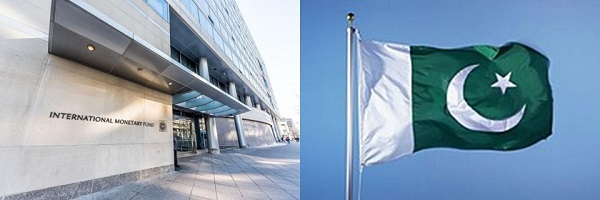Islamabad, (Samajweekly) As Pakistan’s financial year comes to a close, the cash-strapped country’s ruling coalition government seems to have come to a point of desperation as it looks towards the International Monetary Fund (IMF) for leniency and revival of the $6.5 billion loan programme.
The Shehbaz Sharif-led government has been struggling to convince the IMF board on its compliance of all the pre-conditions for the revival of the Extended Fund Facility (EFF), which has led to a delay in the signing of the staff level agreement, causing serious damage to the country’s economic condition.
Experts say that in view of the current situation and with no sign of IMF staff level agreement in the coming days, formulating and presenting the financial budget for the next year in June would be an uphill task for the government as it would have to reflect imposition of all pre-conditions of the IMF board in the budget including increase in taxes, fuel prices and interest rates, which would have direct and massive impact on inflation index.
Pakistan’s Finance Minister Ishaq Dar has started a fresh round of consultations with the IMF Executive Director Bahador Bilani.
As per details of the first virtual meeting, Dar has sought support and lenience in demands from the IMF management to sign the staff-level agreement with Pakistan.
Sources in the Finance Ministry revealed that the IMF Executive Director has asked Dar about Pakistan’s intentions to enter into a new IMF Programme, to which the latter has expressed his readiness to discuss.
The Pakistan government, as well as the Finance Minister, have been publicly blaming the IMF for the delay, claiming that Islamabad has met all prior conditions of the global lender.
However, the IMF has maintained that Pakistan is yet to show full compliance with its pre-conditions, pivotal to the revival of the programme.
But with the financial situation worsening, coupled with all external and global lenders including China, banking their economic financial support to Pakistan with the IMF’s defined tax reforms; Islamabad has come to a state of desperation as it requests the IMF to be considerate towards the country’s state and the current government’s reputation.
Pakistan has been struggling to satisfy the IMF to meet critical conditions for reaching a deal.
And even after introducing the mini-budget, increasing per unit prices of electricity, gas, petrol and leaving the exchange rate of its rupee with market forces; the international lender is still not convinced on Pakistan’s progress.
One most crucial shortcoming of Pakistan is the arrangement of $6 billion in additional loans to bridge the gap.
The IMF, on the other hand, has maintained that the revival of the programme can only happen once the necessary financing was in place.










